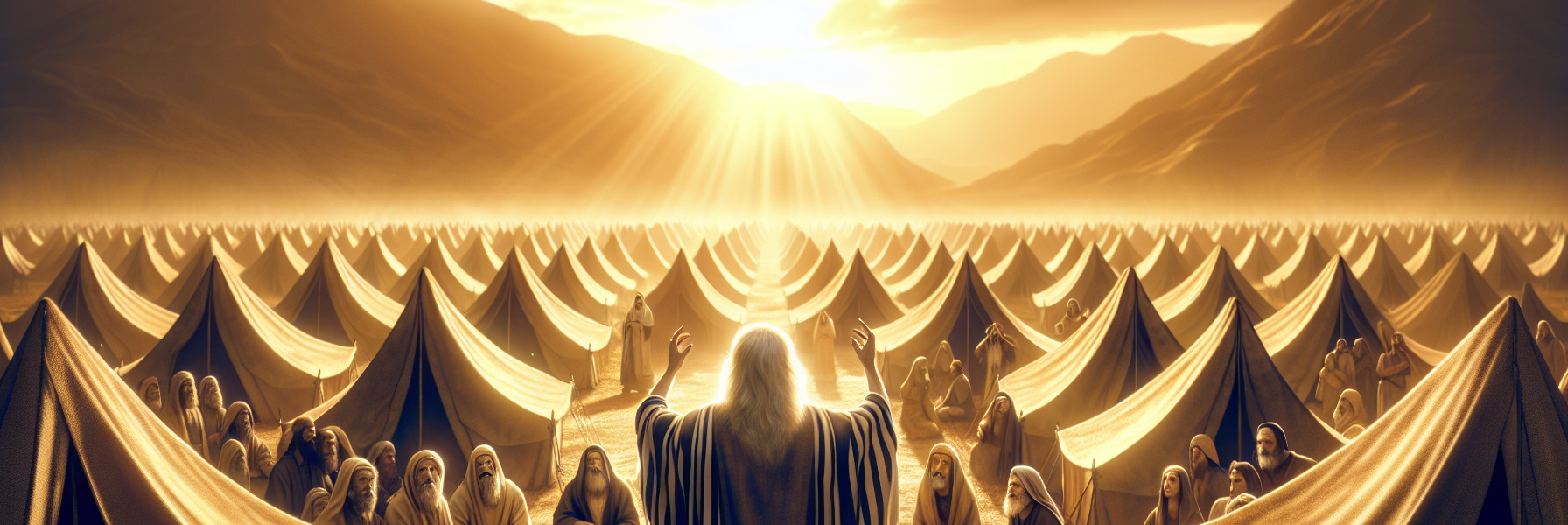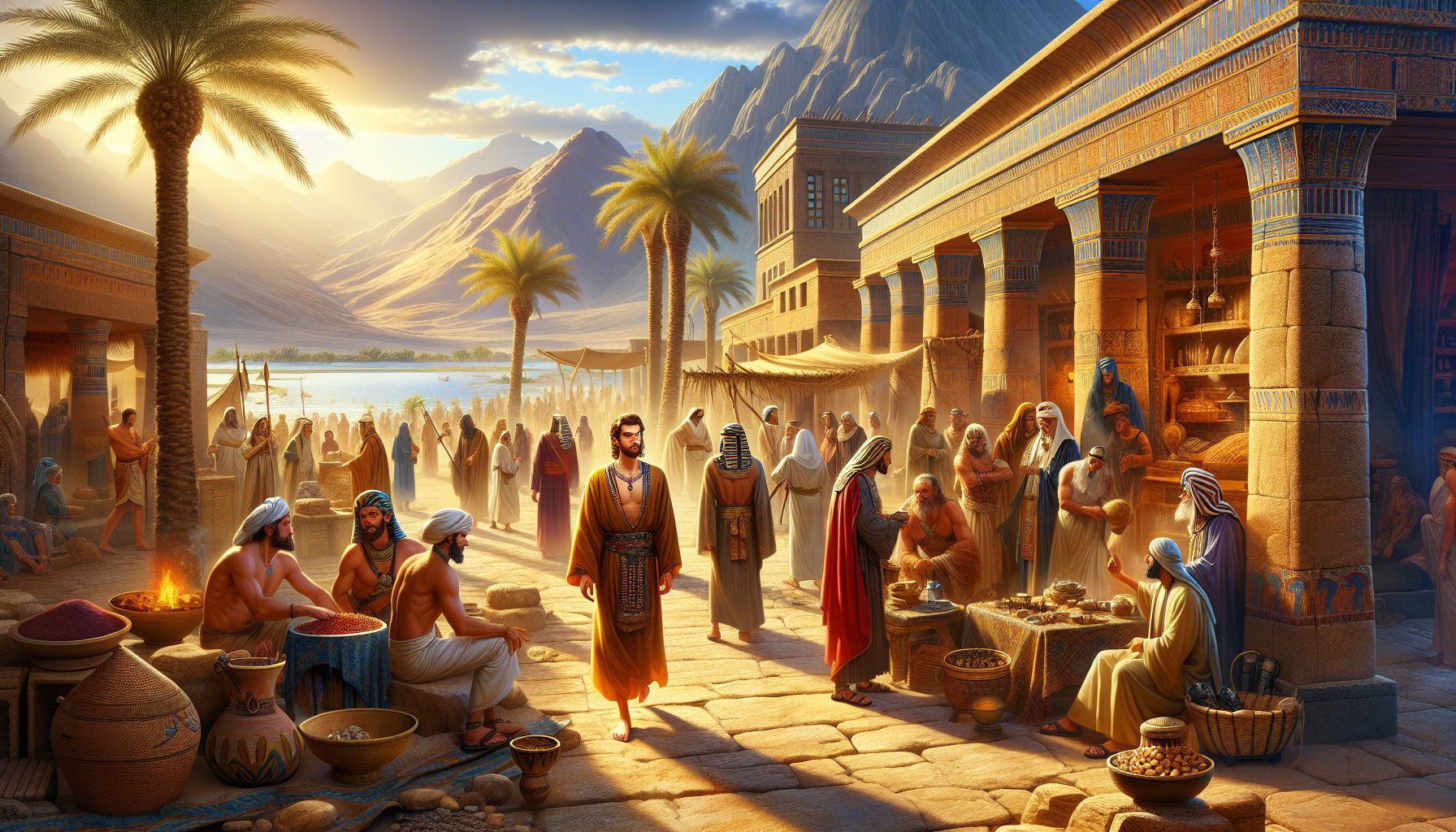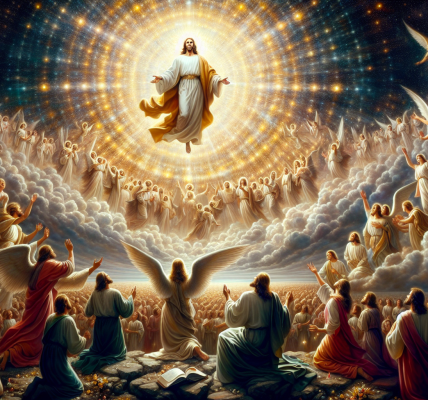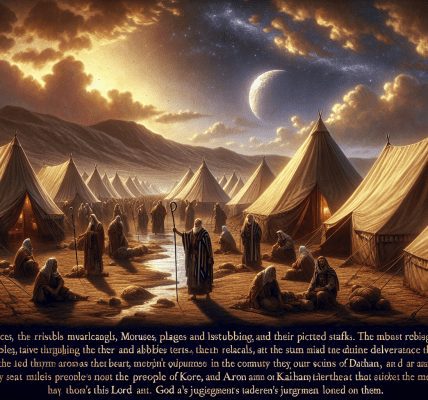**The Offering of Willing Hearts**
The morning sun rose over the wilderness, casting golden light upon the tents of Israel. A hush had fallen over the camp since Moses had gathered all the congregation before the Lord. The people still remembered the terrible price of their idolatry with the golden calf, but now, after Moses’ intercession, God had renewed His covenant with them. The Tabernacle—the dwelling place of the Most High among His people—was to be built.
Moses stood before the assembly, his face still radiant from his time in the presence of God. The people watched him with reverence as he lifted his hands and spoke with authority:
*”These are the words which the Lord has commanded, that you should do them: Six days shall work be done, but on the seventh day there shall be to you a holy day, a Sabbath of solemn rest to the Lord…”*
The people bowed their heads in acknowledgment. They had learned the cost of disobedience, and now they listened with willing hearts. Then Moses continued, his voice swelling with divine urgency:
*”Take from among you an offering to the Lord. Whoever is of a willing heart, let him bring it as an offering to the Lord: gold, silver, and bronze; blue, purple, and scarlet yarn; fine linen and goats’ hair; ram skins dyed red and fine leather; acacia wood; oil for the light, spices for the anointing oil and for the fragrant incense; onyx stones and other gems to be set in the ephod and the breastplate.”*
A murmur rippled through the crowd. The Lord was not demanding tribute from unwilling hands—He sought the gifts of those whose hearts moved them freely.
### **The People’s Response**
No sooner had Moses finished speaking than the people began to disperse, not in reluctance, but in eager purpose. Men and women hurried to their tents, opening chests and bundles, gathering what they had carried out of Egypt—precious metals, fine fabrics, and costly spices.
A Levite woman named Miriam unfastened a small pouch from her belt, revealing a pair of golden earrings she had kept hidden since leaving Pharaoh’s land. She had not given them to the molten calf—now, with tears in her eyes, she pressed them into the hands of the overseers.
Nearby, a broad-shouldered craftsman named Bezalel—already filled by the Spirit of God with wisdom and skill—watched as piles of acacia wood grew beside the Tabernacle site. His heart burned with holy fire, for he knew the Lord had appointed him for this sacred work.
Children, too, joined in the offering. A young boy named Ethan tugged at his father’s robe, holding up a small silver chain. “Abba, can I give this?” His father smiled and placed a hand on his head. “Yes, my son. The Lord loves a cheerful giver.”
### **The Craftsmen Rise Up**
As the offerings poured in, Moses called forward Bezalel and Oholiab, the master artisans chosen by God. The Spirit had endowed them with unparalleled skill—to engrave, to weave, to carve, and to design every part of the Tabernacle just as the Lord had commanded.
Bezalel lifted a hammer, his hands steady as he began shaping the gold into the Ark’s cherubim. Nearby, Oholiab dyed threads in vibrant hues, weaving the intricate curtains that would veil the Holy of Holies. Women skilled in spinning twisted the goats’ hair into sturdy cloth, while others pounded spices into fragrant incense.
The sound of hammers, looms, and chisels filled the camp, not as the clamor of slaves under Pharaoh’s lash, but as the joyful labor of a people serving their Redeemer.
### **More Than Enough**
Day after day, the people came—not out of obligation, but with overflowing generosity. The overseers watched in amazement as the treasures multiplied. Finally, they approached Moses, their faces alight with awe.
*”The people bring much more than enough for the service of the work which the Lord commanded to make.”*
Moses raised his hands and proclaimed throughout the camp:
*”Let no man or woman bring any more offerings for the sanctuary!”*
And so, the flood of gifts ceased, for the materials were sufficient—more than sufficient—for all the work.
### **A Willing People, A Dwelling God**
As the last of the offerings were sorted and the craftsmen continued their labor, a profound sense of joy settled over Israel. They had not given under compulsion, but with hearts stirred by love for the God who had delivered them.
The Tabernacle would rise, not by forced toil, but by the freewill offerings of those who cherished the presence of the Lord. And in this sacred act of giving, they caught a glimpse of the truth—that God does not desire mere ritual, but the devotion of willing hearts.
For He had said: *”Let them make Me a sanctuary, that I may dwell among them.”*
And now, through their generosity, He would do so.




